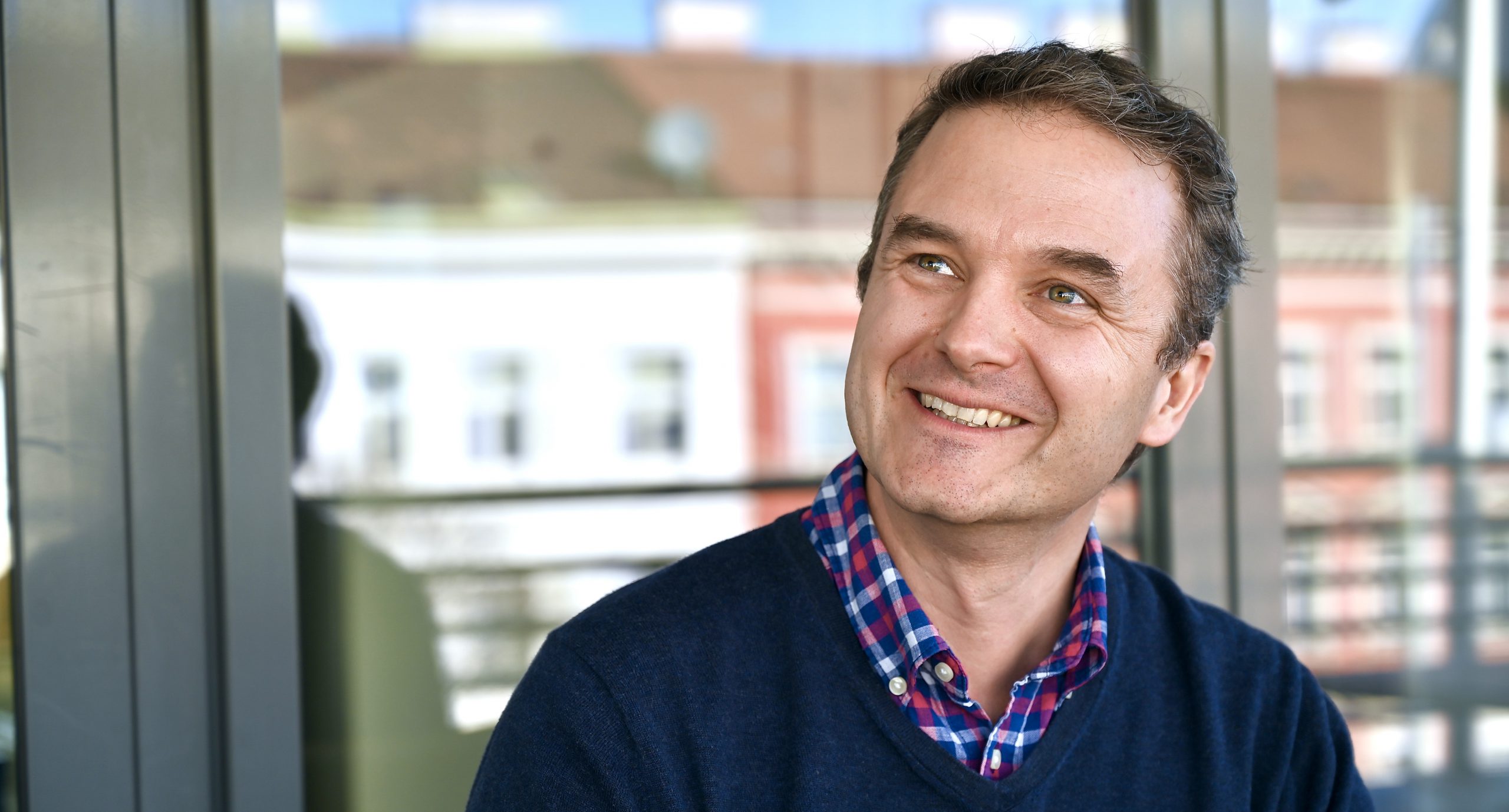Background
Leukemia is a cancer of white blood cells. The disease is characterized by the rapid accumulation of abnormal cells that interfere with the production of normal blood cells. Pediatric leukemias are often very aggressive and show limited response to current therapies. Research in the Grebien group aims to contribute to a better understanding of the molecular mechanisms of leukemia development. We study cellular and molecular effects of leukemia-associated oncoproteins through the development and use of novel tools and approaches, including, transcriptomics, proteomics, functional genomics and imaging. With our work, we aim to identify novel vulnerabilities of leukemia cells that can be exploited as potential drug targets.
Our research
Leukemia development is caused by dysfunction of factors that are required to regulate normal blood development. Leukemia oncoproteins often arise from mutations in genes that encode transcription factors and epigenetic modulators.
We believe that the transforming properties of leukemia oncoproteins are hard-wired in specific networks of physical, genetic and epigenetic interactions with key effector genes and proteins. Functional exploration of these networks provides new insights into cellular processes that are hijacked by leukemia oncoproteins during leukemia development and maintenance. The goal of our research is a comprehensive investigation of oncogenic mechanisms employed by leukemia oncoproteins to identify novel entry points for targeted treatments.
Fusion Proteins
Chromosomal rearrangements often lead to the expression of fusion proteins, which can act as strong cancer drivers. As fusion oncoproteins are neomorphic protein variants with aberrant activities, they represent attractive targets for cancer therapy and have proven to be instructive subjects for cancer research. Fusion proteins are hallmarks of many childhood cancers and are frequently used to classify disease-defining entities in leukemia. Work by us and others has shown that their modular architecture provides a unique framework to explore the contribution of particular protein functions to the molecular mechanisms of cancerogenesis. We investigate how leukemia fusion oncoproteins hijack the cellular infrastructure to induce oncogenic gene expression programs using a multidisciplinary approach. Given their unique molecular structure and function, we believe that the elucidation of their cellular functions will provide novel entry points to design targeted intervention strategies that are specific to fusion oncoproteins.
Approaches and models
While recent advances in our knowledge of the genomic makeup of most cancers have contributed significantly to our understanding of the origin and progression of the disease, it is still unclear how cancer-initiating molecular alterations are functionally integrated into higher-order cellular structures to realize oncogenic programs. By combining novel cell line and animal models of leukemia with cutting-edge proteomic-, epigenomic- and transcriptomic approaches, we perform a detailed functional characterization of leukemia oncoproteins in a global, multilayered fashion. Genome-wide CRISPR/Cas9 screening is used to provide functional genomic context to biochemical and molecular biological observations. We use targeted protein degradation to investigate the dynamics of leukemia oncoprotein action in a time-resolved fashion. High-resolution imaging of their subcellular localization provides cellular context to leukemia oncoprotein activity. These analyses are complemented by functional studies in mouse models and primary human samples to detect molecular vulnerabilities that are dependent on the oncogenic mutation of interest.
Selected Articles
About Florian Grebien
Florian Grebien obtained his PhD from the Medical University Vienna under joint supervision of Ernst Müllner (Medical University Vienna) and Hartmut Beug (Research Institute for Molecular Pathology) in 2007. During his PhD studies, he studied the role of signalling pathways on erythrocyte differentiation. For his post-doctoral training he joined the team of Giulio Superti-Furga at the Research Center for Molecular Medicine (CeMM), Vienna. Using a combination of cell biology, protein biochemistry, and chemical biology, he identified molecular mechanisms that underlie oncoprotein-driven leukemia. From 2014 to 2018, Florian was a Principal Investigator and group leader at the Ludwig Boltzmann Institute for Cancer Research (LBI-CR) in Vienna, supported by an ERC Starting Grant. In January 2018, he was appointed Professor and head of the institute for Medical Biochemistry at the University of Veterinary Medicine Vienna. Florian joined the CCRI in February 2023 as a Principal Investigator. His research focuses on molecular mechanisms of oncoprotein-driven leukemia.



